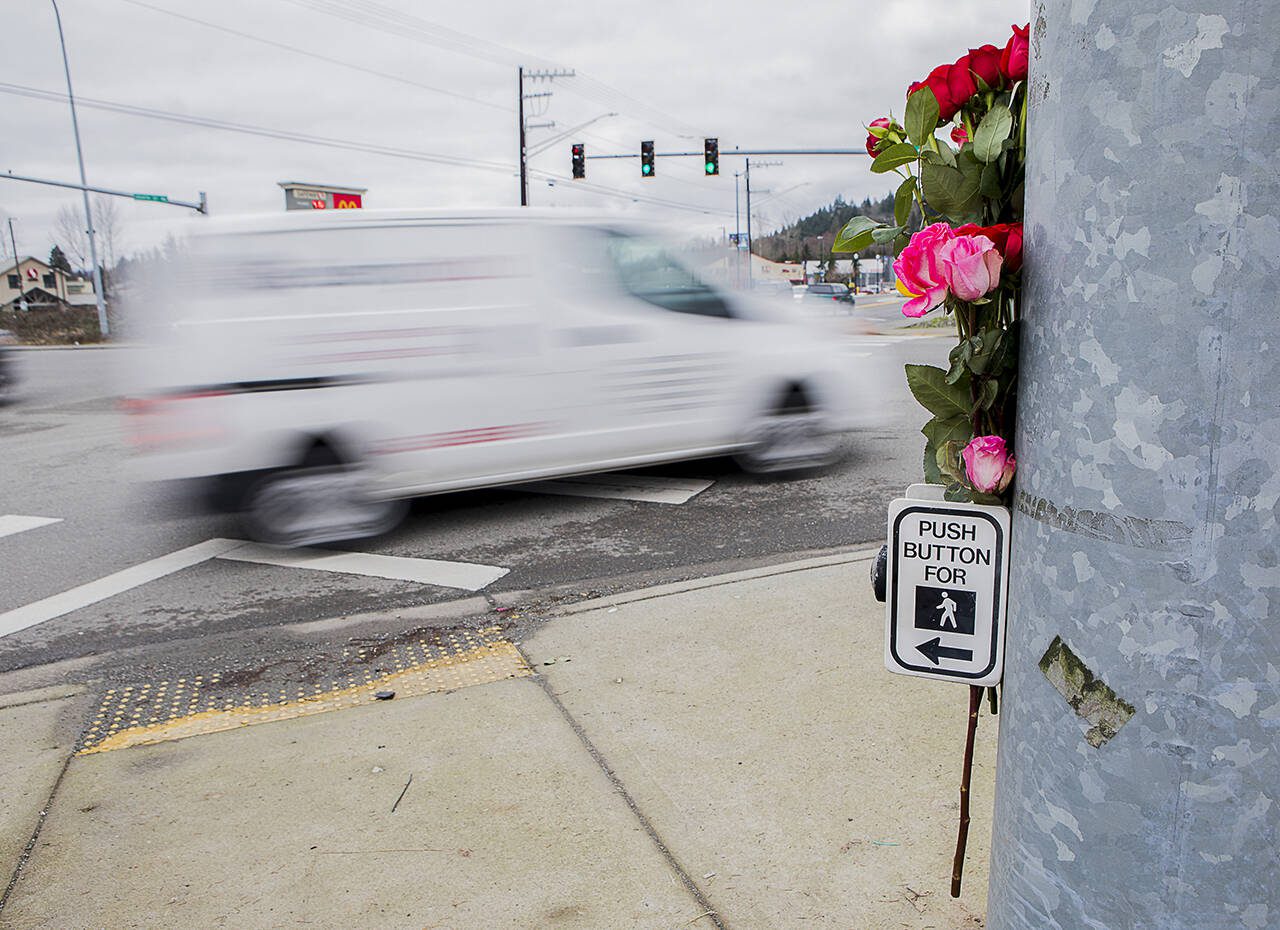OLYMPIA — Amid record traffic fatalities, several Snohomish County lawmakers want to change the long-held legal limit of a 0.08% blood alcohol concentration for driving.
House Bill 2196, introduced by Rep. Brandy Donaghy, D-Mill Creek, would lower the legal alcohol limit to 0.05%.
“We have people dying on our roadways every single day,” she said Thursday in a committee hearing.
If her bill passes, Washington would be the second state in the nation to lower the limit from 0.08%. Utah’s Legislature voted to make the change in 2017. In the first year as state law, Utah’s fatal crash rate decreased nearly 20%, according to the National Highway Traffic Safety Administration.
“When the alcohol concentration is lower, so are these major accidents,” Donaghy said.
She wants the bill to address people’s perceptions of their own alcohol tolerance before getting behind the wheel.
“People start paying attention a little more to how they are thinking and feeling,” Donaghy said. “It’s a kind of deterrent.”
Gov. Jay Inslee supports the bill. The state is “experiencing a crisis of traffic safety,” his policy advisor Debbie Driver said at Thursday’s House Community Safety, Justice and Reentry Committee hearing.
Between 2017 and 2021, there were 194 fatal crashes in Snohomish County, according to the state traffic safety commission. Nearly one in three were connected to alcohol.
Statewide in 2022, nearly 700 people died in fatal crashes, the greatest number of deaths since 1990. An impaired driver was involved in more than half of those crashes.
Hospitality, brewery and winery business groups opposed the bill, arguing a lower limit would make businesses and employees more liable for overserving alcohol to customers. It’s difficult to gauge when someone has a 0.05% blood alcohol concentration, said Trent House, representing the state hospitality association.
The business groups support educational campaigns on the dangers of drunken driving. House said lowering the legal limit seems unnecessary when marketing can encourage sober driving.
Washington law previously held the legal limit at 0.10%, but after research showed that drivers often show signs of impairment before reaching 0.10%, the limit was lowered to 0.08% in 1999.
In most European countries, 0.05% is already the standard, if not lower, according to the World Health Organization. A few Eastern European countries have a zero tolerance policy, with the legal limit at 0% when driving.
If the bill passes in Olympia, the state’s traffic safety commission would undergo a major education campaign, said Shelley Baldwin, the commission’s director.
In a statewide survey conducted by the commission, 5% to 10% of drivers acknowledged driving impaired, she said.
Lowering the legal limit wouldn’t change how police identify impaired driving in the state, said Washington State Patrol Chief John Batiste.
“Our goal is not to arrest our way out of this situation, our goal is to educate citizens about the dangers of driving under the influence,” he said.
Regardless of the limit, law enforcement can make arrests for driving under the influence without testing for a blood alcohol concentration, as long as the driver shows signs of impairment.
Donaghy’s bill isn’t the first one sponsored by a local legislator. Last year, state Sen. Marko Liias, of Everett, and Sen. John Lovick, of Mill Creek, introduced a bill in the state Senate that would lower the legal limit.
Lovick had a 31-year tenure as a state trooper, before serving as Snohomish County sheriff. His attempt died mid-session last year without getting a vote in the state Senate.
Although the bill was reintroduced in this year’s session, it has yet to make further progress.
The House’s community safety committee is scheduled to vote on Donaghy’s bill Tuesday.
Jenelle Baumbach: 360-352-8623; jenelle.baumbach@heraldnet.com; Twitter: @jenelleclar.
Talk to us
> Give us your news tips.
> Send us a letter to the editor.
> More Herald contact information.

























